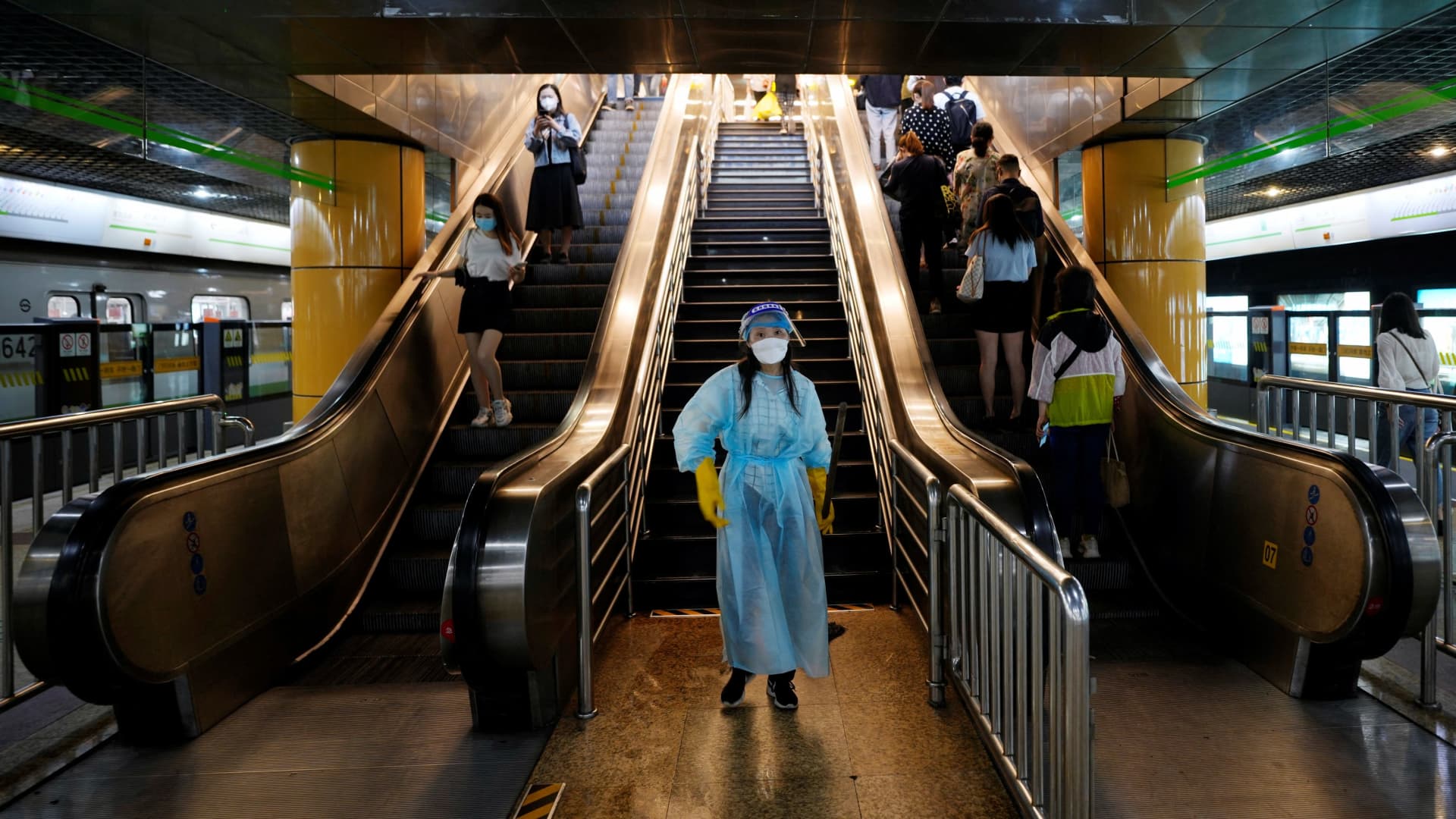BEIJING — China’s top leaders signaled Thursday that no big stimulus for economic growth was on the way, and downplayed the necessity of achieving the “around 5.5%” GDP target.
In the second half of the year, authorities said they would stabilize employment and prices, according to a state media readout of the leaders’ meeting Thursday. Chinese President Xi Jinping headed the economic meeting, held regularly with China’s leadership, known as the Politburo.
That high-level mention of stabilizing prices indicates there won’t likely be any additional expansionary policies, Wang Jun, a director at the China Chief Economist Forum, said in a phone interview. He noted high inflation overseas, and expected China would face greater inflationary pressure in the coming months.
One of the largest stimulus announcements came in late May when China’s State Council, the country’s top executive body, announced 33 economic support measures ranging from tax refunds to infrastructure investment.
While Wang expected continued use of credit and local government bonds to support the economy, he said authorities would not likely “force” 5.5% growth. That’s according to a CNBC translation of his Mandarin-language remarks.
China’s gross domestic product grew by just 2.5% in the first half of the year from a year ago, after the economy slumped in the second quarter. The country’s worst Covid-19 outbreak since 2020 locked down the metropolis of Shanghai in April and May, while related restrictions in other parts of China hit business activity.
Sticking to zero-Covid
However, on Thursday China’s leaders did not signal any change in the country’s “dynamic zero-Covid” policy.
“Regarding the relationship between pandemic control and the development of the economy and society [we must] … take the long view, especially from a political point of view, calculate the political cost,” the state media readout of the Politburo meeting said in Chinese, according to a CNBC translation.
The readout did emphasize how local governments should take a more localized approach, especially on economic policy and resolving problems in real estate.
“Provinces with the conditions to achieve the economic targets should strive to,” the readout said.
Shanghai’s GDP contracted by 5.7% in the first half of the year from a year ago, while Beijing city’s grew by just 0.7%, according to data accessed through Wind Information. The provinces of Shanxi, Jiangxi and Fujian were among the fastest growing, by at least 4.6% in the first six months of 2022.
The leaders’ meeting reflects “a more flexible and pragmatic attitude toward [the] GDP target,” said Bruce Pang, chief economist and head of research for Greater China at JLL.
He estimated the year’s urban unemployment rate of 5.5% can still be achieved if the economy rebounds by about 5% or more in the second half of the year.
Real estate: A local matter
On real estate, the Chinese leaders stuck with their mantra that “houses are for living in, not speculation,” while stating that local governments are responsible for delivering completed houses.
Developers in China typically sell apartments before finishing construction, generating an important source of cash flow. However, recent construction delays have prompted many homebuyers in the last month to suspend mortgage payments, putting developers’ future sales at risk.
The meeting readout also noted how policy for resolving real estate problems shouldn’t be the same across all cities, said Qin Gang, executive director of China real estate research institute ICR.
Instead, he said the readout encouraged local governments to take a localized approach in supporting people’s purchases of a first home or an upgraded property.
The tech crackdown
On the internet tech crackdown that’s hit companies from Alibaba to Didi, Chinese authorities again signaled they were reaching a turning point.
The Politburo meeting readout called for the continued “healthy” development of the “platform economy” and “completing” the businesses’ adjustments. The leaders also said lists of allowable “greenlit” investment areas should be published.
The readout said policy must also support business confidence, so that, among other items, foreign businesses “dare to invest.”
